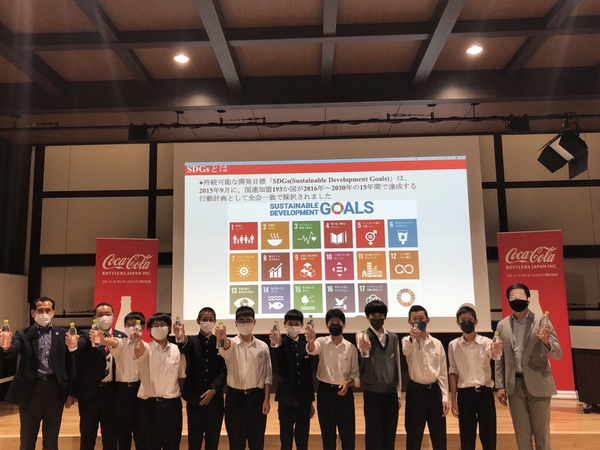What we are doing
- Our aim is to develop sustainable communities and work toward solutions for social issues while maintaining communication with communities.
- CSV Goals (Creating Shared Value)
-
*The base year is 2015 and the target year is 2025 unless otherwise noted.
Society
- 10%:Employee volunteers
- 1 Million:Paticipants in community programs
- Policy
Contributions to local communities through business
The CCBJH Group believes that thriving communities are a prerequisite for sustainable business activities and conducts a wide range of social activities in local communities based on this belief. Through our core business, we engage in activities such as supporting food banks and collaborating with local governments on agreements to supply drinking water to emergency shelters during disasters. By being involved in these ways, we are forging deeper ties with the community and expanding relationships.
Local assistance during natural disasters
We have prepared for large-scale natural disaster by entering into disaster relief agreements with 1,062 organizations (as of the end of 2021) in our sales areas. The provisions include prioritizing supplies of drinking water to emergency shelters and providing beverages from vending machines free of charge during disasters,so that people in the areas impacted by the emergency can rapidly access drinking water.
In 2019, we responded to requests from the government to provide beverages to residents of Chiba and Fukushima prefectures affected by typhoons Faxai and Hagibis. These efforts were commended in a letter of appreciation from the Ministry of Agriculture, Forestry and Fisheries.
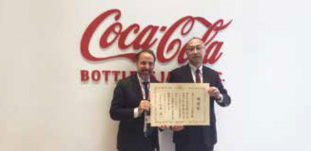

Donating products through food banks
Since 2016, CCBJI partner with 26 organizations, including Second Harvest Japan (member of Alliance of Japan Foodbanks), which is Japan's first Food Bank organization and Food Bank All Japan Association, to donate our beverage products on a regular basis to children's cafeterias and social welfare facilities, etc. through Food Bank organizations in different regions.
Food Banks mean "Banks of food" and are the organizations and activities that distribute food items that are still edible, but have to be disposed of, to the facilities and people who are in need. The Food Loss Reduction Promotion Act was enacted last year, and the activities of Food Banks are drawing even more attention.
The number of Children's Cafeterias is increasing year by year due to the changes in the home environment. The Children's Cafeterias are playing the role to provide opportunities for the children from different environments to eat together, prevent loneliness, and receive dietary education, and develop the society that respects diversity. CCBJI is participating in these activities in the hope that our donations will help reduce food loss and resolve challenges that local communities face.
[Product donation results]
2016: 8,489 cases / 2017: 26,758 cases / 2018: 24,903cases / 2019: 9,585 cases / 2020: 20,477 cases / 2021: 11,063 cases / 2022: 38,713 cases / 2023: 35,443 cases
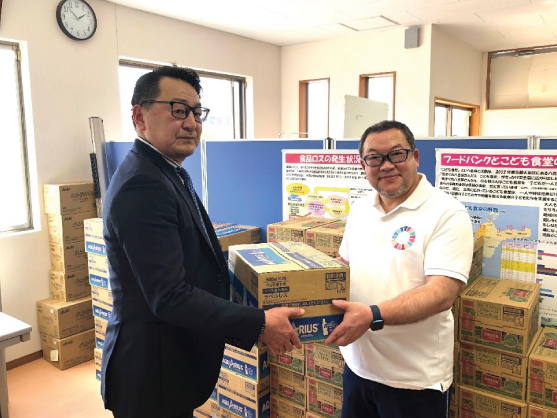
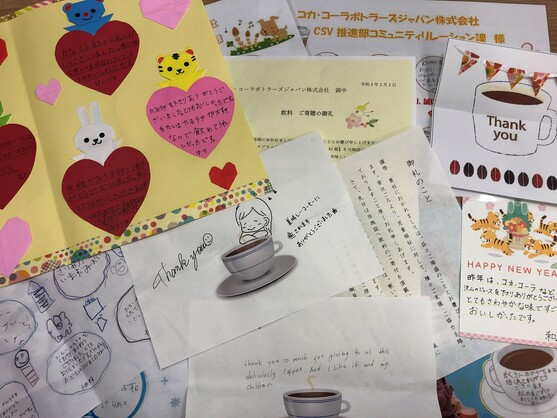
Tourism promotion agreements
We have concluded tourism promotion agreements with local governments such as in Chiba, Kanagawa, Saitama, and Kyoto prefectures, for the purposes of promoting tourism in the region.
Based on these agreements, we are developing Coca-Cola bottles with unique designs in each region and carrying out initiatives that include donating a portion of the sales proceeds.
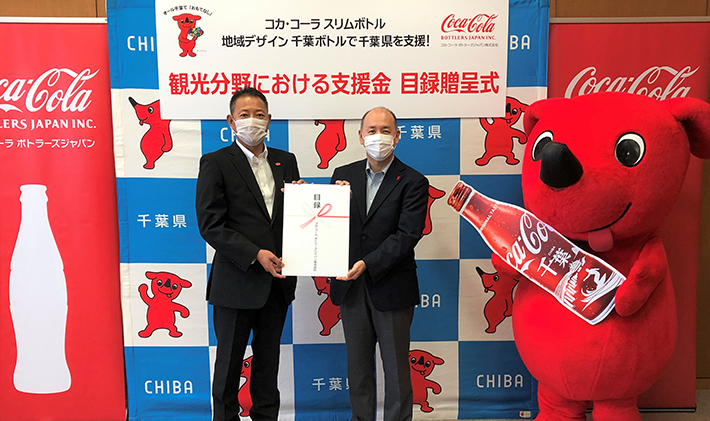
Community support vending machines
We are promoting the installation of community support vending machines with unique illustrations at sightseeing locations and tourist attractions within sales areas. A portion of the sales proceeds of The Coca-Cola Company’s products from these support vending machines is donated to local governments and NPOs in those areas and is used to fund activities like regional revitalization and community development.
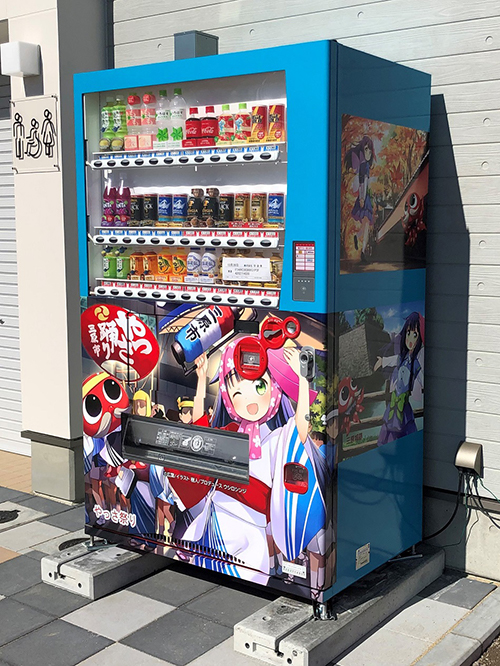
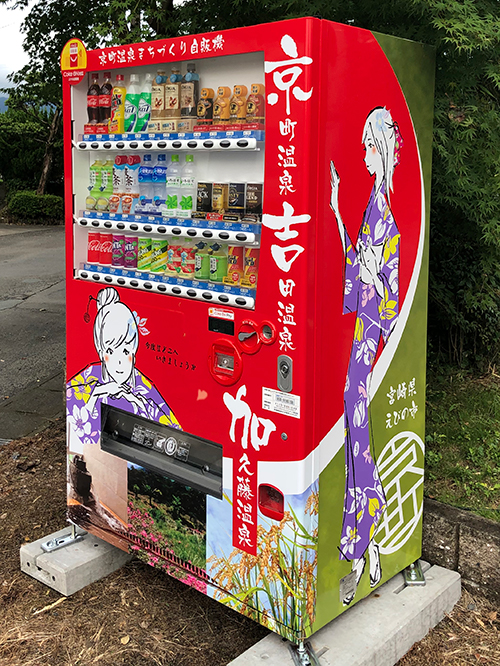
Support for Zenshiren* disability care
In the Coca-Cola System, including the CCBJH Group, we donate a portion of the proceeds of sales from vending machines with the Zenshiren sticker to Zenshiren, an organization that promotes greater social participation for disabled people and an increase in facilities for disabled children and adults. This program began in 1980 and has continued for over 40 years.
*National federation of the physically disabled and their parents associations
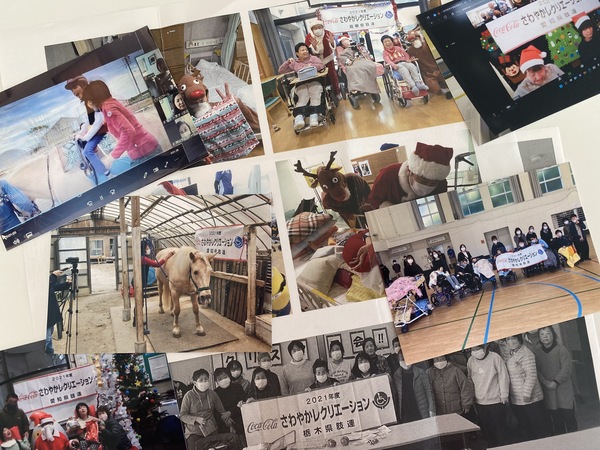
Ebino Plant receives Prime Minister’s Award in 2020 for promoting the greening of business sites
The CCBJI Ebino Plant (Ebino City, Miyazaki Prefecture) received the Prime Minister's Award in 2020, which is granted to individuals and organizations who have demonstrated outstanding contributions in promoting the greening of business sites.
An important production and logistics base in the southern Kyushu area, the Ebino Plant is a park-based facility in harmony with the rich, natural environment. The plant and its grounds attract as many as 150,000 visitors annually, including 70,000 visitors for our plant tours. In the plant’s water source area, we have concluded agreements with Ebino City and local forestry associations to carry out forest conservation activities and promote the protection of water resources. This award is normally presented at the Ceremony of awarding the MIDORI Prize (hosted by the Cabinet Office), which is held in April each year.
However, the ceremony was cancelled to prevent the spread of COVID-19, and an award presentation ceremony was held at the Miyazaki prefectural government’s office in November 2020.
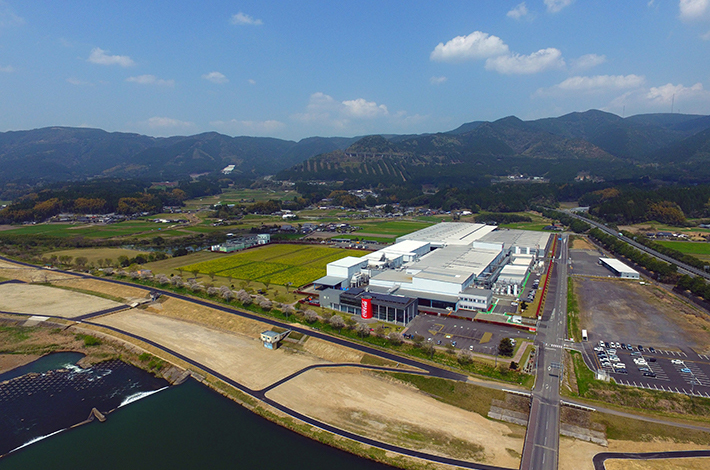
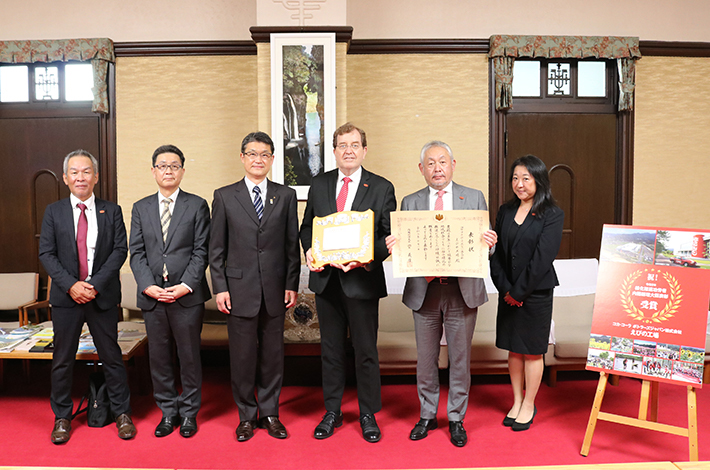
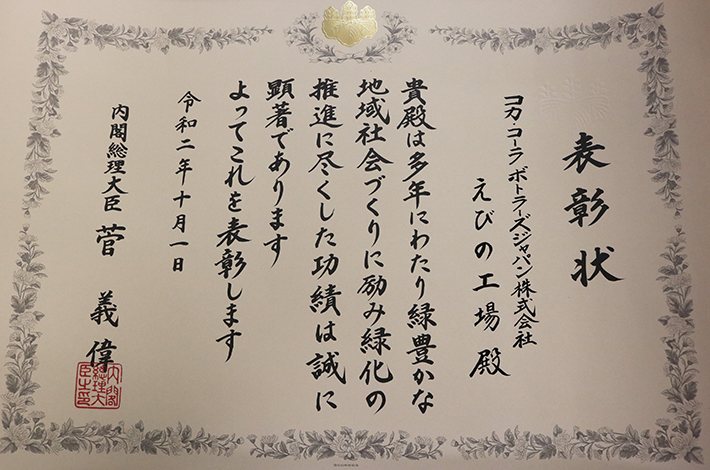
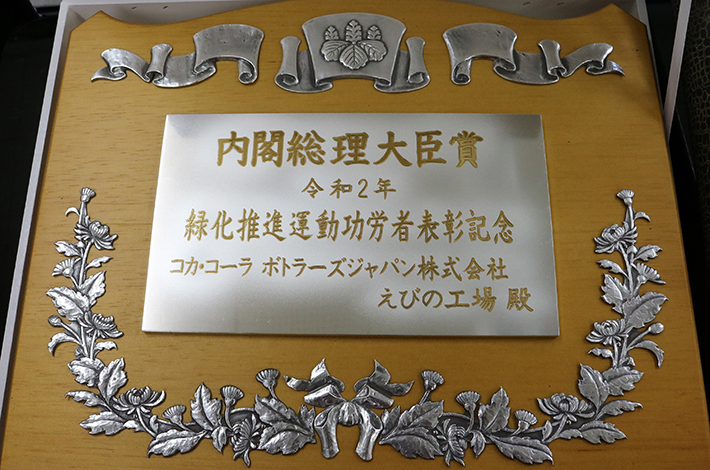
A collaborative program to address community challenges
In Miyagi, Fukushima, Mie, and Miyazaki prefectures, the CCBJH Group is supporting initiatives designed to help solve regional issues. Based on collaboration between industry, government, academia, and nonprofit organizations—for example, regional administrations, educational institutions, and municipal organizations—the initiatives are conducted through a variety of projects, such as youth-led workshops, activity presentations, and awards systems.
In Saga prefecture, receiving the support of the Mayor of Tosu City, board of education, and Saga prefectural environment department, we support and operate the Ichimura Nature School Kyushu to revitalize the depopulated region and address various educational issues as one of our shared value activities with community.
SDGs Workshop, Mie Mirai (Mie Prefecture)
This workshop is held as a collaborative effort among Mie Prefecture, Dr. Masao Aoki’s research lab, Recurrent Education Center at Mie University, the nonprofit organization MBridge and CCBJH. In this event, participants exchange ideas to increase Mie Prefecture’s attractiveness and solve its problems through dialogue.

The Sendai Youth Award (Miyagi Prefecture)
Since 2017, we have collaborated with Sendai City and offered the Sendai Youth Award to recognize outstanding efforts by youth organizations that contribute to achieving a sustainable society and resolving social issues.
In the sixth award held in 2022, the target area was expanded to all of Miyagi Prefecture with the aim of creating an environment in which more young people can play an active role. Eight finalist teams that passed the preliminary screening presented their efforts in November.

Challenge Internship Project (Fukushima Prefecture)
Since 2016, we have partnered with Fukushima Prefecture’s Challenge Internship Project in cooperation with Saposen, a support center for organizations active in Fukushima. Through internships we support learning and other experiences for young people. We promote future city planning by helping educate young people about issues facing the region and the attractiveness of Fukushima.
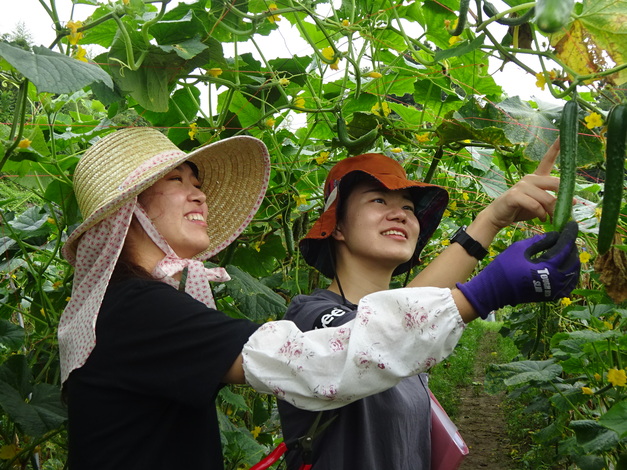
MIYAZAKI SDGs ACTION (Miyazaki Prefecture)
This project brings together high school students, university students, and companies to learn and consider what a sustainable economy and society should look like. In 2022, CCBJH employees from our Ebino plant worked alongside local students to recycle coffee beans and tea dregs.
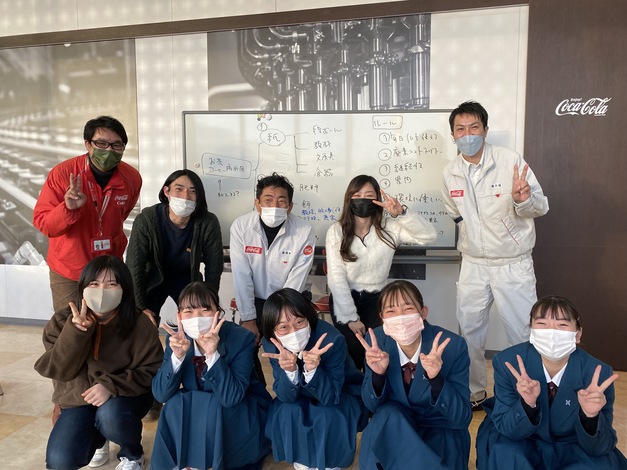
The Ichimura Nature School Kyushu
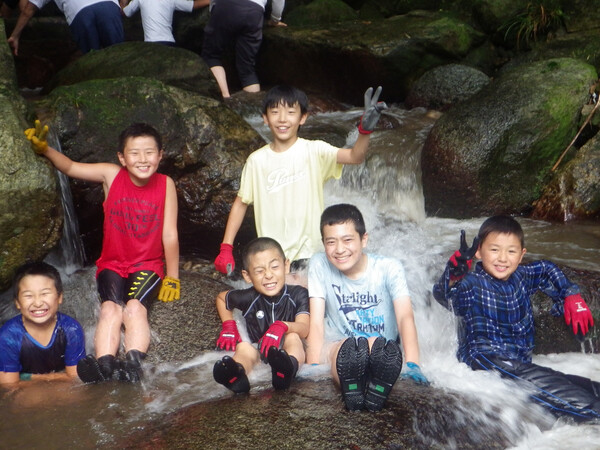
Upholding the basic philosophy of “leaning the power to live from Mother Nature”, we have been supporting and operating the Ichimura Nature School Kyushu, which supports healthy emotional & physical growth of children over 20 years in Saga.
The school offers agricultural activities and a variety of hands-on experiential learnings in nature, so that students can obtain essential abilities for living within the society such as independence, creativity, cooperativeness, and self‐control through living together with peers at a nature-rich learning site.
The Ichimura Nature School won Grand prize from the Minister of Education, Culture, Sports, Science and Technology in the 1st. “Award for Companies Promoting Experience-based Activity of Youth” and other recognitions such as the Social Contribution Award and the Saga Best Award, the school has been highly evaluated by various sectors including the government.
The Coca-Cola Educational and Environmental Foundation
The Coca-Cola Foundation carries out a scholarship aid initiative to develop and nurture the type of young talent required by the international community, as well as develop human resources that support the local communities. For over 40 years, this initiative has helped students with financial difficulty to attend university.
Starting 2020, in addition to those who plan to go to university, we also recruited those who plan to go to graduate school and be engaged in the "studies related to earth and environmental resources" for scholarship with the aim of promoting sustainability and SDGs.
※The Coca-Cola Foundation scholars are recruited through each high school every fall.

Support for environmental education
The Coca-Cola Foundation is a Public Interest Incorporated Foundation that awards the “Coca-Cola Environmental Prize” to young people in each region who conduct environmental volunteer activities to promote and support community-based environmental education and environment conservation.


Local seminars on the Sustainable Development Goals (SDGs)
As interest in SDGs increases, our dedication to achieving these goals has led us to engage in new efforts. We have developed a series of lectures and presentations at schools in order to introduce our CSV activities. We will continue to focus on communication with local communities as we devise new approaches to our goals.
Lecture at Toyosu Market
CCBJH was invited to give the keynote lecture at a workshop held at Tokyo’s Toyosu Market under the theme of “Trends in the Recycling of Plastic Resources and Measures Against Marine Waste: What We Can Do at Toyosu Market.” The title of the keynote lecture was “How the Coca-Cola System Addresses SDGs.” In the keynote lecture, it is described the priority issues in the Coca-Cola System Sustainability Framework, including the bottle-to-bottle initiative, and engaged in lively discussions with people involved with the market.
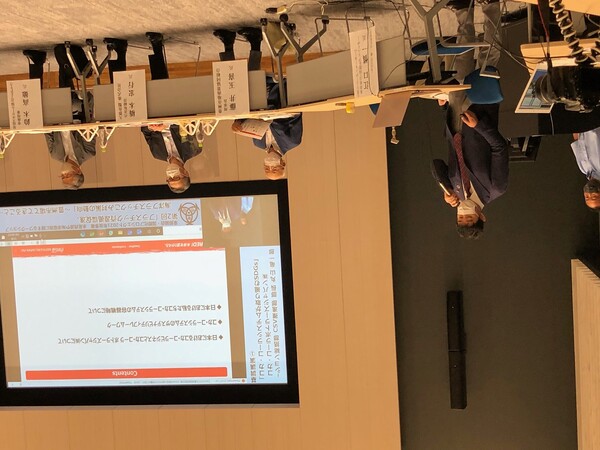
Online seminars for junior high school students
Employees held a special online seminar about recycling PET bottles for students at Anjo Nishi Junior High School in the city of Anjo, Aichi Prefecture. Held at the request of Anjo’s municipal government, the seminar, aimed at third-year students, emphasized learning about two SDG themes “Goal 12 “Ensure sustainable consumption and production patterns” and Goal 14 “Life below water.” The presenters provided easily understood explanations through a series of quizzes.
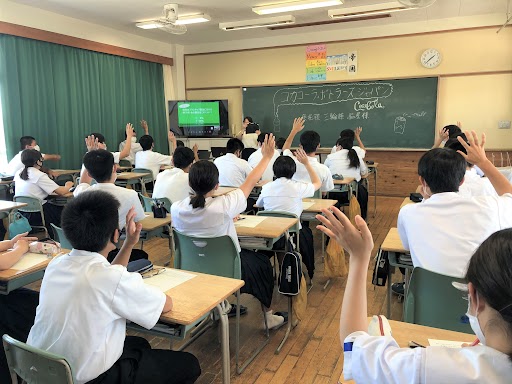
PET bottle recycling course for junior high school students
Employees of the vending Shiga SC were invited to Aketomi Junior High School in Moriyama, Shiga Prefecture to give first-year students a class on the environmental efforts of the city of Moriyama and our company and on PET bottle recycling. The presenters received many messages from the students, who routinely learn about SDGs and climate change. These messages included statements such as “I didn’t know that my own actions are linked to worldwide movements” and “I want to support 100% recycling, too.”
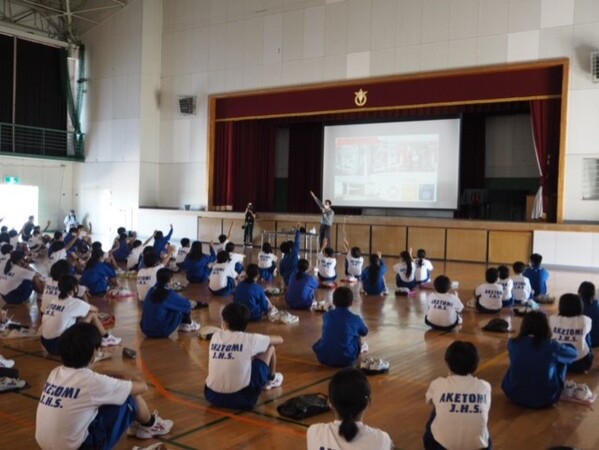
SDGs seminar for high school students
Employees went to Higashi Fukuoka Jikyokan Junior High School, part of the private school Higashi Fukuoka Gakuen in the city of Fukuoka, Fukuoka Prefecture, to conduct an exploratory lesson for second-year students, “What We Can Do to Achieve SDGs: Learning from the Example of Coca-Cola.” In August 2020, Higashi Fukuoka Gakuen and our company issued their “Joint Statement on Efforts To Meet SDGs,” stating their future intentions of building a better world through common efforts at sustainability.
